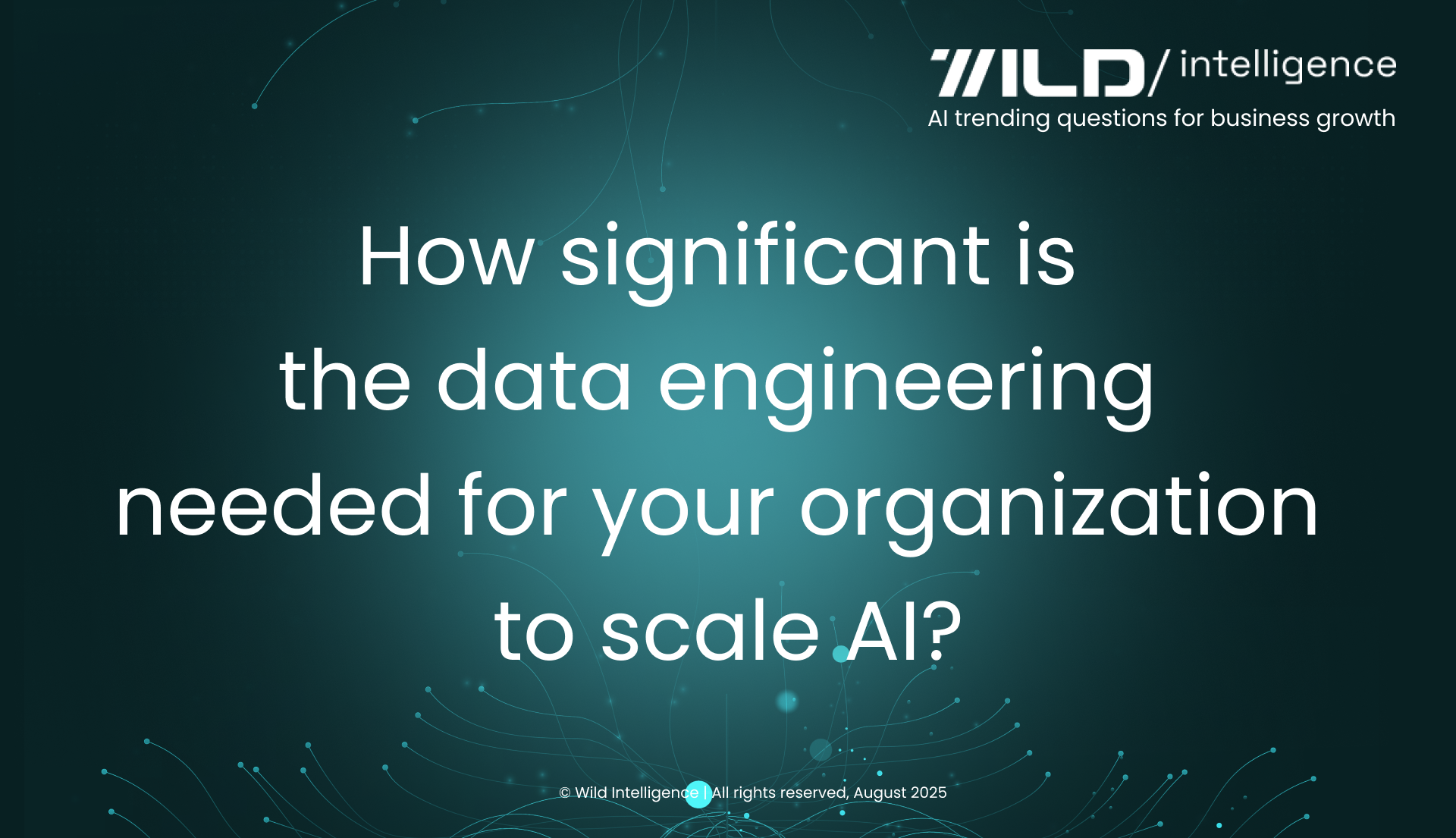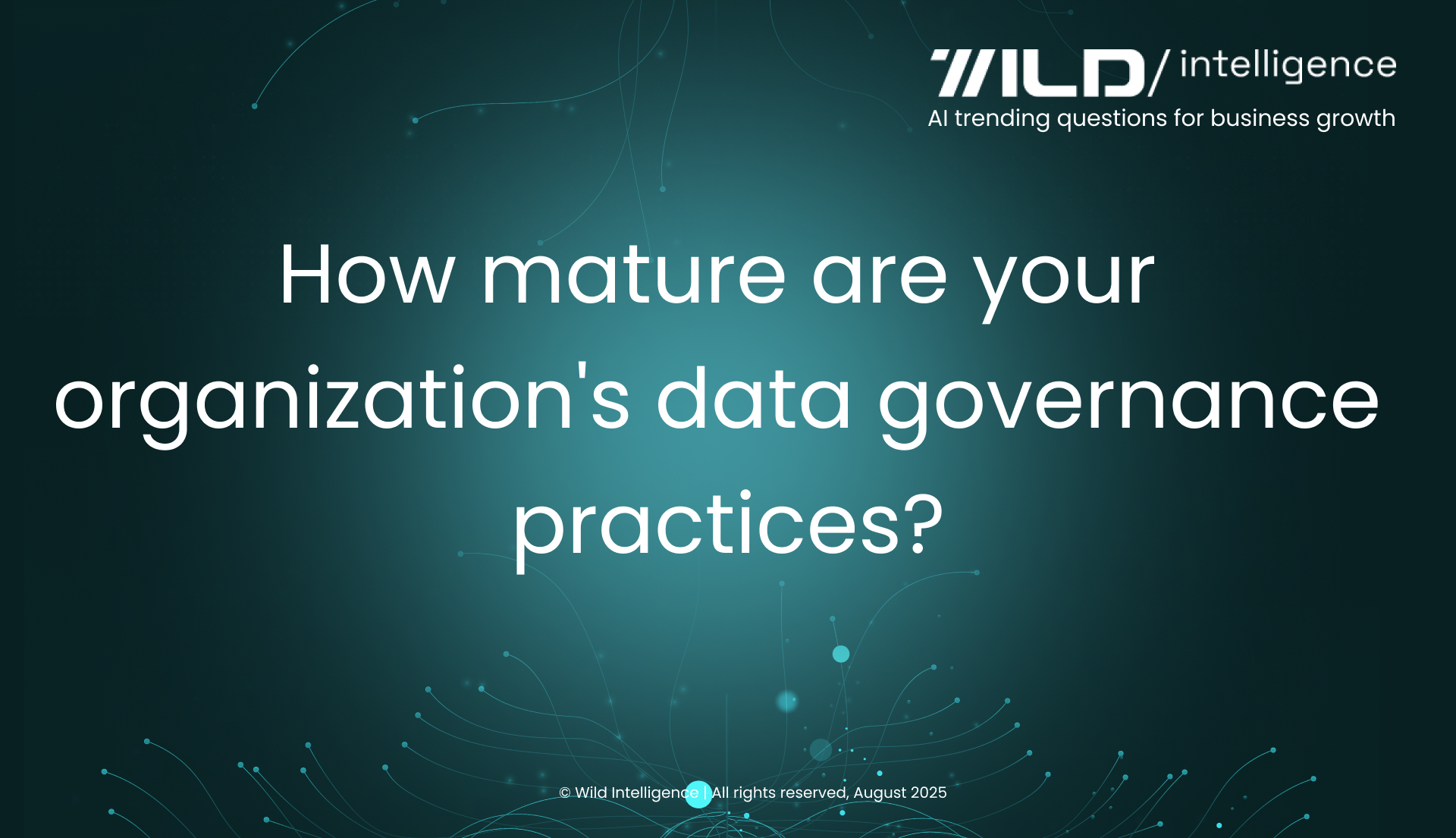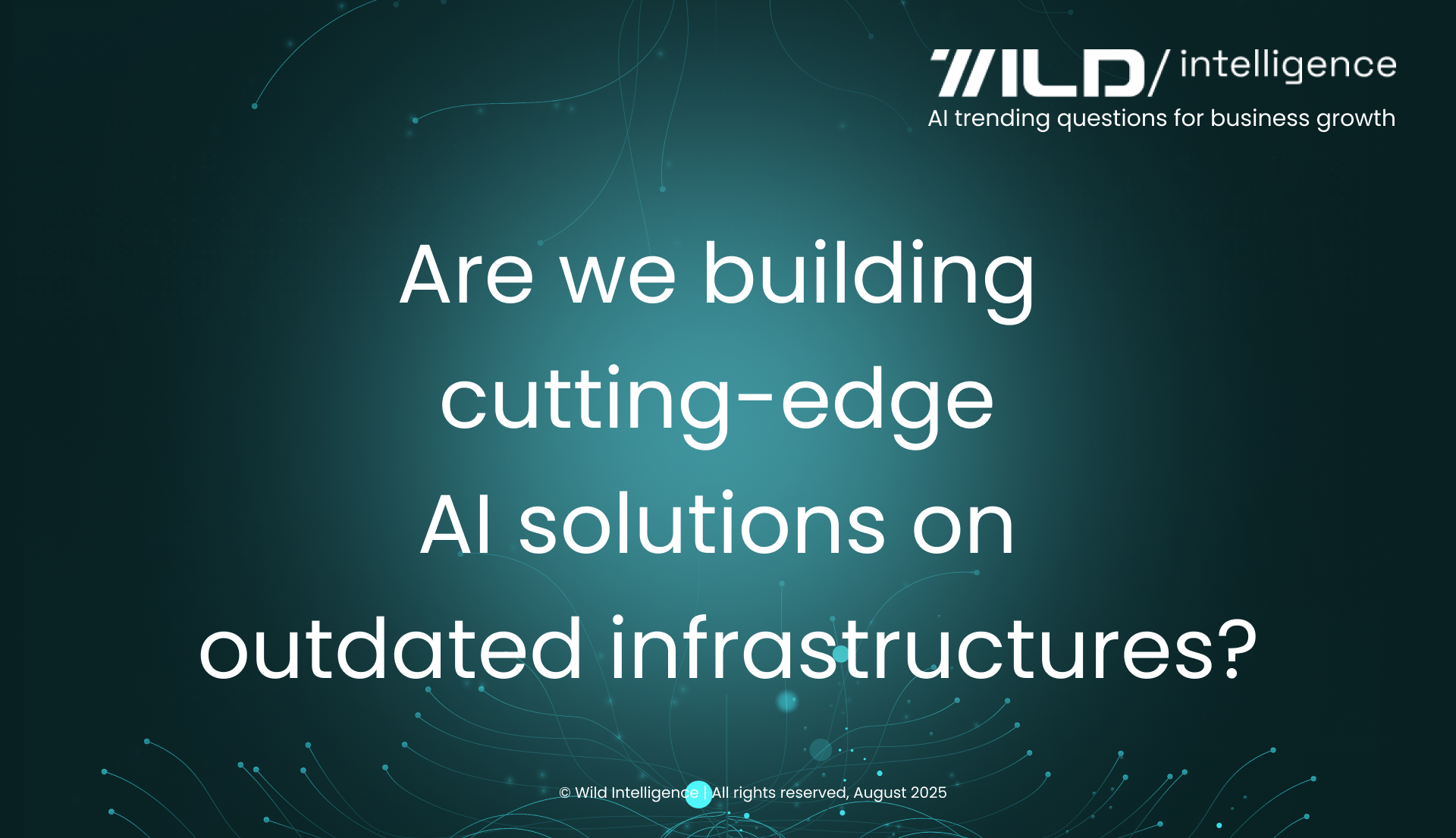AI trending questions for business growth
We love big questions. We want to get the right signals in a world of noise.
We ask big questions no one wants to ask and share the answers with you.
We explore what inspires the world to develop and scale the critical solutions we need to build a safe future.
We share community comments and feedback.

How important is it to be fully explainable and transparent in the use of data?
As AI moves from experimental labs to the core of enterprise operations, its "black box" nature poses a significant challenge.
Decision-makers are increasingly asked to trust AI's output without fully understanding its rationale.
This leads to a critical question: In our drive for AI-driven "enterprise autonomy," can we truly achieve widespread adoption and realize the full potential of AI if we cannot fully understand how its decisions are made, or if the data fueling it remains opaque?
This question is essential for leaders because it directly impacts risk management, regulatory compliance, and the critical factor of trust – both internal and external – in AI systems.

How significant is the data engineering needed for your organization to scale AI?
The most sophisticated AI models, no matter how advanced, are ultimately only as effective as the data pipelines that feed them.
This reality brings us to a critical workforce question that every leader must confront:
As the demand for AI capabilities surges and the complexity of data infrastructures grows, are we adequately addressing the growing need for skilled professionals who can build, manage, and optimize the intricate data pipelines that underpin successful AI deployments, or is the talent gap becoming our silent AI killer?
This question is essential for startup founders and decision leaders alike who need to secure the human capital necessary to realize their AI vision and achieve the "ferocious growth" seen by leading AI companies.

How consistent are data formats needed for AI in your organization?
The promise of holistic, AI-driven insights from across an enterprise is often undermined by a fundamental problem: disparate data systems speaking entirely different "languages."
This leads us to ask a seemingly simple yet profoundly impactful question:
Why do our seemingly intelligent data systems often remain stubbornly incompatible, hindering seamless analysis and integration, and what are the profound strategic implications of this ongoing semantic disconnect for our AI ambitions, particularly as we try to build a unified "ontology" of our operations?
This question is crucial for decision leaders seeking seamless data integration and a unified view of their organizational information to enable advanced AI applications.

How mature are your organization's data governance practices?
If AI is poised to become the "operating system for the modern enterprise," can organizations afford to integrate this power without a robust, board-level commitment to ethical data stewardship, or will the risks ultimately outweigh the rewards?
As we continue to explore AI, the challenges encountered will underscore the critical importance of robust data governance. Establishing strong data governance frameworks is paramount.

Are we building cutting-edge AI solutions on outdated infrastructures?
The ambition to leverage AI for transformative impact often clashes with the practical realities of existing data infrastructure.
This raises a crucial question for those charting the course: as our data volumes and AI model complexity grow exponentially, and as we seek to achieve the "tectonic shift in adoption" of AI-powered solutions, is our current infrastructure robust and scalable enough to support this ambitious journey, or will it become a limiting factor in our progress and prevent us from realizing "performance-based supremacy"?
This question is essential for decision leaders as it highlights the need for strategic, often significant, investments in infrastructure to avoid bottlenecks and ensure the long-term viability of AI initiatives.

What innovative AI techniques can we leverage to unlock the insights hidden within our unstructured data archives?
We often speak of data as the lifeblood of modern organizations, yet for many, this vital resource remains trapped in isolated pockets, unable to flow freely and nourish the whole.
This raises a critical question: In our interconnected world, are the self-imposed boundaries of data silos hindering our potential for growth, innovation, and a comprehensive understanding of our business landscape?
This question is crucial for leaders because it directly impacts their ability to gain comprehensive insights, make informed strategic decisions, and harness the full potential of their data assets.

What is the true cost of "dirty data"?
Artificial intelligence promises to revolutionize industries, but its effectiveness is intrinsically linked to the integrity of the data it consumes.
This leads us to a fundamental inquiry: As we increasingly rely on AI for critical decisions – from optimizing supply chains, to transforming healthcare workflows – are we diligently ensuring the quality of its foundational data, or are we inadvertently constructing sophisticated models on a potentially flawed and unreliable base?
This question is crucial for decision leaders, as it highlights the risk of basing strategic moves on inaccurate information, leading to costly errors and missed opportunities that undermine the exceptional advances enabled by technology.

Why can't our data systems speak the same language?
Achieving data standardization requires a collaborative effort across the organization.
This involves establishing common data models, defining standard data formats and naming conventions, and implementing metadata management systems to ensure consistency and interoperability.
Data governance bodies can play a crucial role in driving and enforcing these standards.

Can we build AI responsibly in a complex data landscape?
Establishing robust data governance frameworks is paramount.
This includes defining clear data usage policies, implementing strong security measures, ensuring compliance with relevant regulations, and establishing ethical review processes for AI projects.
Transparency and accountability in data handling are crucial for building trust.
